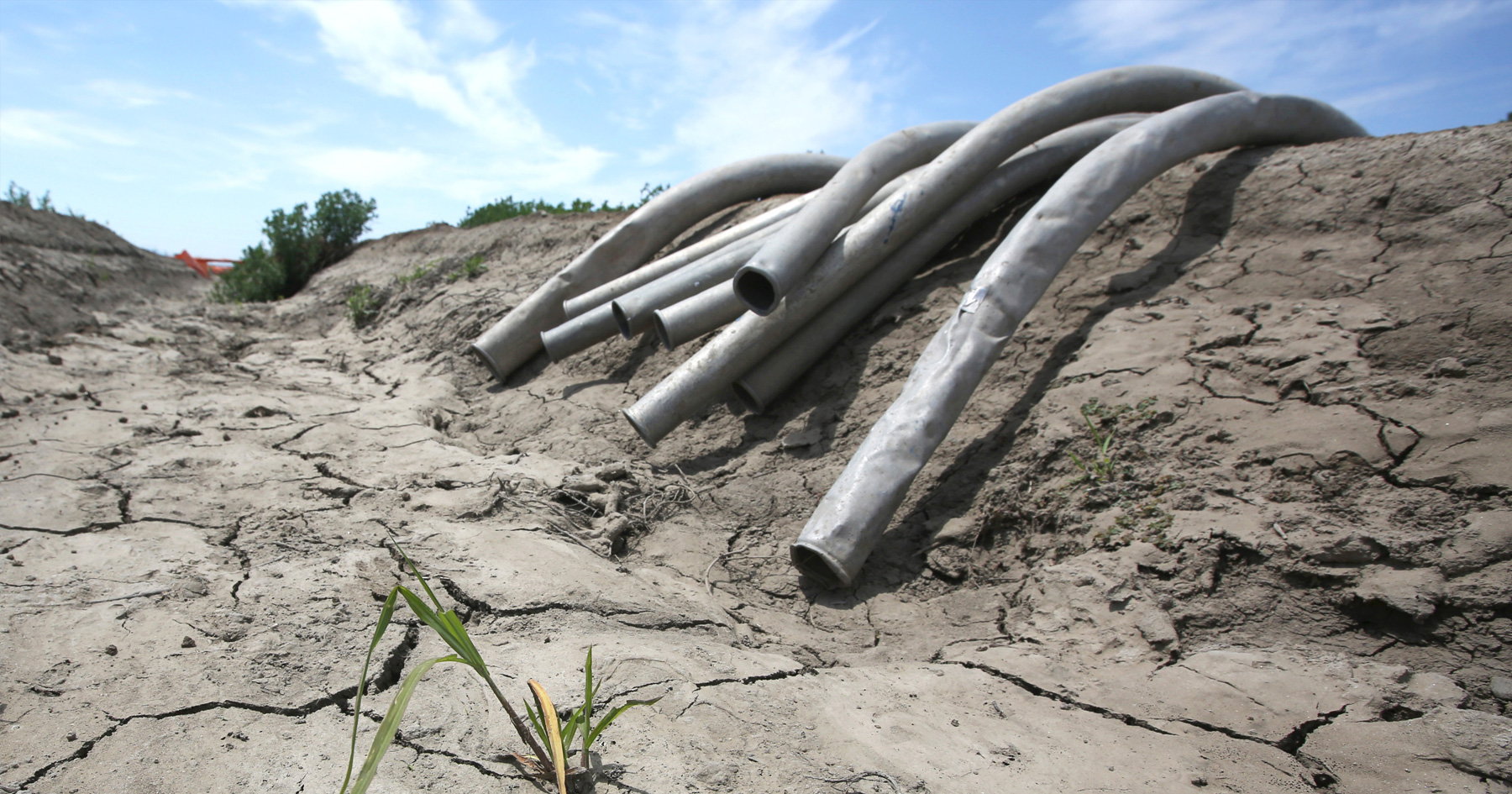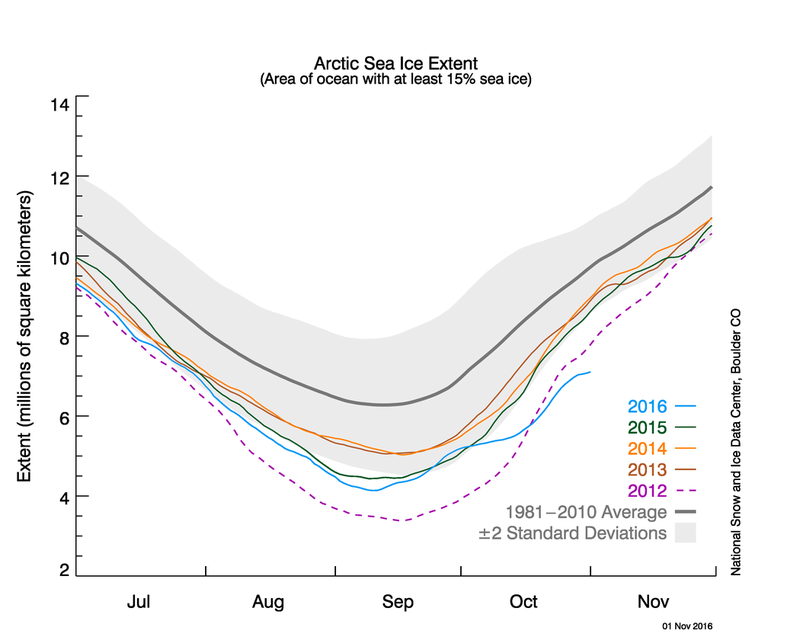There's Something Very Weird Happening to Weather Across the United States

By:
A blistering cold front left temperatures plunging in many U.S. states Saturday and Sunday, ABC News reports.
 Flickr/tafs - flic.kr
Flickr/tafs - flic.kr
Arctic air over the Midwest caused weekend travel delays and accidents in Baltimore, Indiana, Michigan, Ohio, and Chicago.
The frigid weather is being called 'weather whiplash,' a term used to describe rapid shifts between extreme temperatures.
These periods have been linked to manmade climate change, Dr. Joe Room wrote for Think Progress in 2015.
"[M]ultiple studies project the normal climate for much of the United States will become moderate to severe drought," Room writes. "At the same time, a warming-driven moister atmosphere is already delivering more and more of the rainfall we do see in the form of deluges. That means weather whiplash."
Temperatures in North Dakota and Colorado dipped to 31 and 27 degrees below zero respectively on Saturday.
From ABC News:
"Bismarck, North Dakota, posted a new record low for the date of Dec. 17 with 31 degrees below zero on Saturday before midnight, said National Weather Service meteorologist Zachary Hargrove. Linton, North Dakota, was even colder at minus 33 degrees early Sunday.
Colorado residents were digging out after up to 16 inches of snow fell across the state on Saturday, stranding motorists and leaving some areas of the state with subzero temperatures on Sunday. The National Weather Service said the thermometer dipped to 27 degrees below zero in Limon. Breckenridge reported the most snow, with 16 inches that gave skiers and snowboarders the heavy snow they have been hoping for all season."
Southern states are also feeling the sudden burst of cold.
Freezing temperatures left roads icy in Virginia, North Carolina, and Missouri, according to ABC News.
Norfolk, Virginia meteorologist Evan Stewart tweeted a forecast of the weekend weather Friday.
Texas may be suffering from the worst case of 'weather whiplash.'
North Texas temperatures dropped 50 degrees between Saturday and Sunday, Dallas News reports. The weather left many North Texans without power Saturday night and early Sunday due to outages, Fox 4 News reports.
Research illustrates that droughts and deluges (sudden, large amounts of rainfall) are increasing in length and severity in much of the country.
 AP Photo/Rich Pedroncelli - apimages.com
AP Photo/Rich Pedroncelli - apimages.com
These lengthy dry and rainy seasons have been linked to the phenomenon scientists call "Arctic amplification," the Weather Channel reported in a 2014 story.
The Weather Channel breaks down why this is happening:
"Because the Arctic is warming so quickly – about twice as fast as as the rest of the planet – the difference in temperature between the Arctic and the lower latitudes is narrowing.
That temperature difference drives the jet stream; when it shrinks, the jet stream slows and undulates more. It also moves more north-south than east-west (its usual flow), and can get stuck in patterns that last for much longer than they did even a few years ago.
And when that happens, the waves of the jet stream slow down and become larger and more sluggish. When they increase in size thanks to Arctic amplification, they move eastward more slowly, allowing the weather associated with them to stick around longer."
 NSIDC - nsidc.org
NSIDC - nsidc.org
Climate scientists believe exacerbated jet stream variations are worsening floods and droughts, creating 'weather whiplash,' Climate Central reported in a 2013 story.
From Climate Central:
"The proximate cause for the floods and the drought have had to do with sharp and extended variations in the jet stream, which in the case of flooding means storms were steered into the Midwest, or in the case of drought means they were steered away from the region. However, the long-term increase in water vapor due to manmade global warming acts to worsen both extremes by providing more water for storms to work with, therefore dumping heavier rains, or making temperatures hotter than they otherwise would be during a drought, thereby drying soils out even more."
A June 2015 study published by The Royal Society linked the rapid warming of the Arctic to a surge in extreme weather events.
“As emissions of greenhouse gases continue unabated, therefore, the continued amplification of Arctic warming should favor an increased occurrence of extreme events caused by prolonged weather conditions," the authors write.
